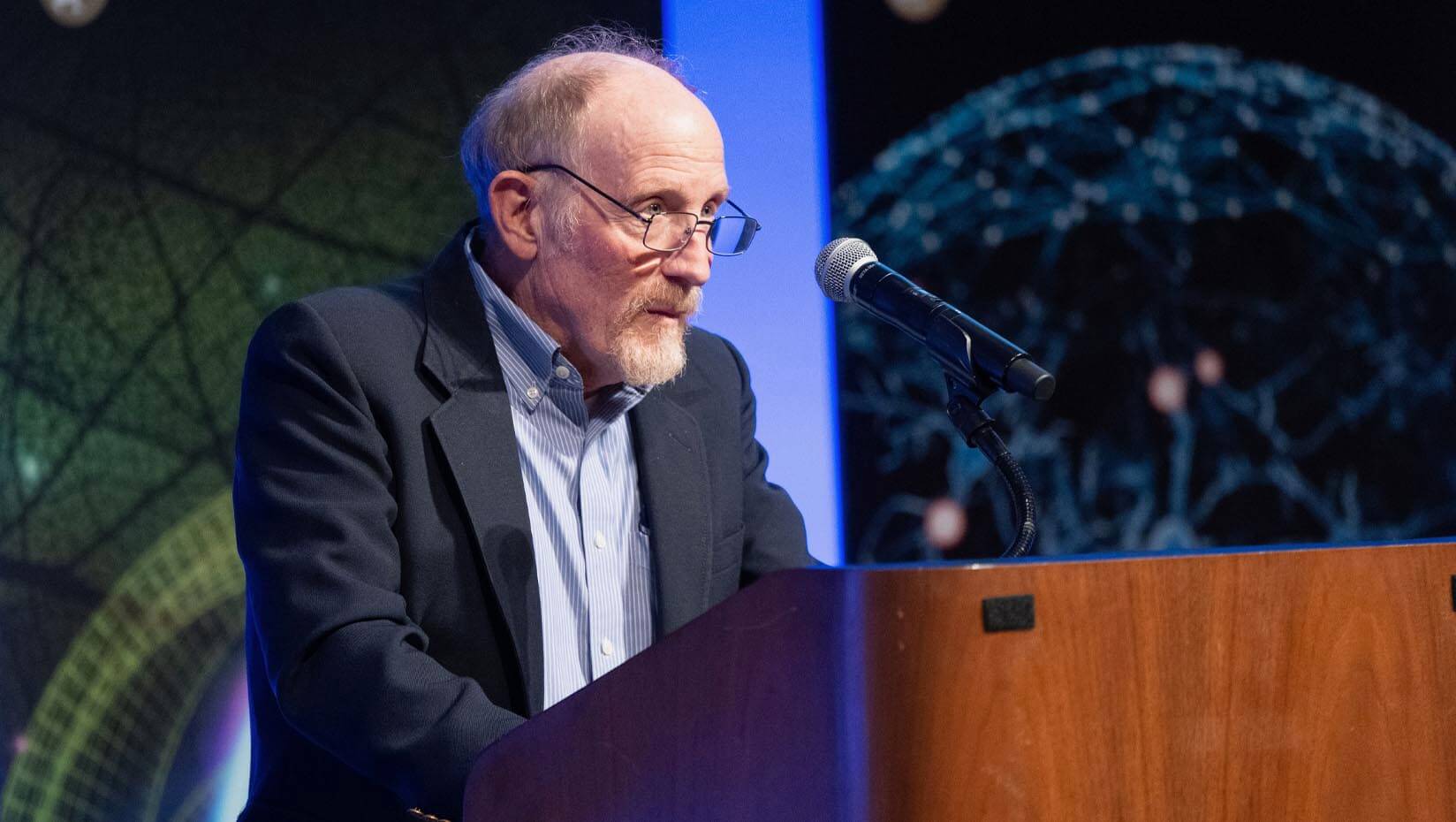
UMaine marine scientist elected to American Academy of Arts and Sciences
Bob Steneck, who helped reshape marine research in Maine during his 41-year career at the University of Maine, was elected to the American Academy of Arts and Sciences.
Established just after the American Revolution by Benjamin Franklin, Alexander Hamilton and 60 others, the Academy honors excellence and convenes leaders from every field of human endeavor to examine new ideas and address issues of importance to the nation and the world. Steneck, professor emeritus of oceanography, marine biology and marine policy who retired in 2023, is among nearly 250 new members who will be inducted this October in Cambridge, Massachusetts.
“I was shocked when I learned I had been elected to the Academy of Arts and Sciences,” Steneck said. “I didn’t see this coming, but I think arts and sciences pair very well. We all live on the same planet; we see similar things but integrate our experiences in new ways that sometimes shines a new light where it belongs or opens someone’s mind to something new.”
Steneck is the first UMaine faculty researcher to join the American Academy of Arts and Sciences. He stands alongside a long list of renowned scientists, including Charles Darwin, Albert Einstein, Jonas Salk, E.O. Wilson and Barbara McClintock.
“We congratulate Bob on this incredible, well-earned recognition and are thrilled that his transformative impact on marine science and conservation has been recognized by this prestigious organization,” said UMaine President Joan Ferrini-Mundy. “The honor is a testament to the lasting benefits of Bob’s legacy, which include changing our understanding of Maine’s most lucrative fishery, establishing a multidecadal relationship with our fishermen and coastal communities and helping preserve vital ecosystems across the Western hemisphere. Many of today’s top-tier scientists and conservation leaders also benefited from his tutelage. I was pleased to award Bob with the 2020 University of Maine’s Presidential Research and Creative Achievement Award, which is our top honor for faculty research.”
When Steneck joined UMaine in 1982, he was among the first marine ecologists to work with lobstermen on research and share findings with them. His larger goal was to develop multiple indicators of the health of the lobster fishery. His work and that of his students and colleagues propelled an expansion of, and change in, how lobster fishery research is conducted in Maine. Today, UMaine researchers and students collaborate on studies not only with lobstermen but also with fishermen and other industries that contribute to the state’s blue economy.
A few years ago, Steneck and his colleagues published a study warning against relying on the lobster fishery to sustain Maine’s coastal communities, adding that the crustacean’s abundance and high value at that time may have created a false sense of security. While it remains immensely profitable, the fishery has become more susceptible to disruptions threatening Maine’s blue economy. Other fisheries in New England have faced similar problems, such as the collapse of southern New England’s once thriving lobster fishery because of disease.
Over the past half century, Steneck has also conducted research on coral reefs world-wide, including the Great Barrier Reef, French Polynesia, Micronesia, but by far most of his research has been in the Caribbean. Since the 1980s, he and UMaine students have traveled to coral reefs in the U.S. Virgin Islands, Mexico, Belize, Bonaire and the Dominican Republic. Based on their research, Steneck and his students helped devise management strategies to improve the resilience of coral reefs. Specifically, Steneck’s long-term research in Bonaire, located in the Dutch Caribbean near Venezuela, suggested regulations that helped its coral reefs bounce back after a sudden coral bleaching event.
Former students of Steneck include Carl Wilson, Maine’s newest commissioner of marine resources; Richard Wahle, former director of UMaine’s Lobster Institute; Elizabeth Stephenson, director of the Marine Conservation Action Fund; Amanda Leland, executive director of the Environmental Defense Fund; Susie Arnold, senior ocean scientist and director of the Center for Climate and Community for The Island Institute; Ruleo Camacho, marine ecologist for the National Park Authority for Antigua and Barbuda; Jeanne Brown, communications and outreach coordinator for the Northeast Climate Science Center at the University of Massachusetts Amherst; Sally Hacker, a professor of coastal ecology at Oregon State University; and Kirt Moody, a professor of biology and environmental science at Columbia College.
In his retirement, Steneck continues to conduct marine science research. He is an editor for Sciences Advances, one of the journals published by the American Academy of Sciences, and is writing a textbook on coral reefs. He also serves on the Hurricane Island for Science and Leadership Board of Directors.
Learn more about Steneck’s career and contributions to marine science on UMaine News.
Contact: Marcus Wolf, 207.581.3721; marcus.wolf@maine.edu
